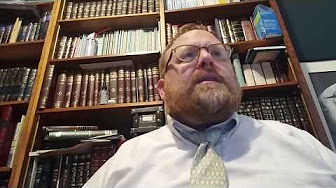
This is the playlist for the series of shiurim on Minhag Avoseihem b'Yedeihem according to various sources.
https://www.youtube.com/playlist?list=PLXhYlGVtIOa8Hjo-76QMXTdtTz1cl44eF

My Rosh Yeshiva, Rav Yaakov Weinberg, zt’l, explained that absent a navi, we cannot know the reason for a tzara that befalls the klal. We can, however, glean what may need tikkun by looking at the impact of the tzara during the aftermath of that tzara. While not a perfect application, Rav Weinberg’s teaching keeps echoing within me as our community practices social distancing during the current Covid-19/coronavirus crisis. We lament the restrictions on our communal observances, communal celebrations, communal grieving and communal chessed. Not being allowed to attend minyanim, shiurim, simchos, shivas, family events, schools, yeshivas, kollelim is a sudden shock to our communal consciousness and way of life.This tzara has forced us to remain at home, to daven b’yechidus, to be only with our immediate family and for those who live alone, to be alone. We are to stay at least 6 feet away from other human beings. The mitzvas aseh of our current situation is to remain by ourselves. We are being forced inward.
I heard a definition of human “shelaimus” or human completeness from Rabbi Shmuel Prero, z’l during a hesped . He framed shelaimus in terms of relationships. Amongst other things, Rabbi Prero said that a complete person has a full relationship with his family, his community, the Jewish people as a whole, with the RBSO and with himself. This crisis may be signaling the need and presenting the opportunity for us to face our relationships with our families and ourselves. There was a study out of the University of Virginia in Charlottesville a number of years ago that made headlines, ”People would rather be electrically shocked than left alone with their thoughts.” 67% of men and 25% of women undergraduates and community members left alone for 15 minutes in a room chose to give themselves an electric shock rather than be alone with themselves and their thoughts. The same people responded that they would rather pay money than receive an electric shock.
We all know that relationships require work and focus. We are told to set aside time with those with whom we desire to be close to focus on and nurture those relationships. This may be with friends, spouses, parents, children, or rabbeim. I wonder whether the RBSO is helping us focus on being alone with ourselves and are own thoughts, on being alone with Him, on being alone with our families. Some have speculated that COVID-19/coronavirus may reflect the RBSO’s rejection of our communal observances. I certainly don’t know, but I can’t help but think that the RBSO might be asking us to embrace Him as individuals – just each of us and Him. I can’t help but think that the RBSO might be asking us to embrace our immediate family. I can’t help but think that the RBSO might be asking us to embrace ourselves as individuals and not merely as members of our social groups. Rather than calling it social distancing, I prefer to think of it as “internal embracing.” May we soon emerge from this crisis more whole, with greater shelaimus in all our relationships, and re-embrace our communities, our shuls, our yeshivas, our kollelim as yeraim v’shelaimim.

![בגדי שש Toras Purim 5757-5780 by [Bechhofer, Yosef Gavriel]](https://images-na.ssl-images-amazon.com/images/I/41rRzkoZolL.jpg)


